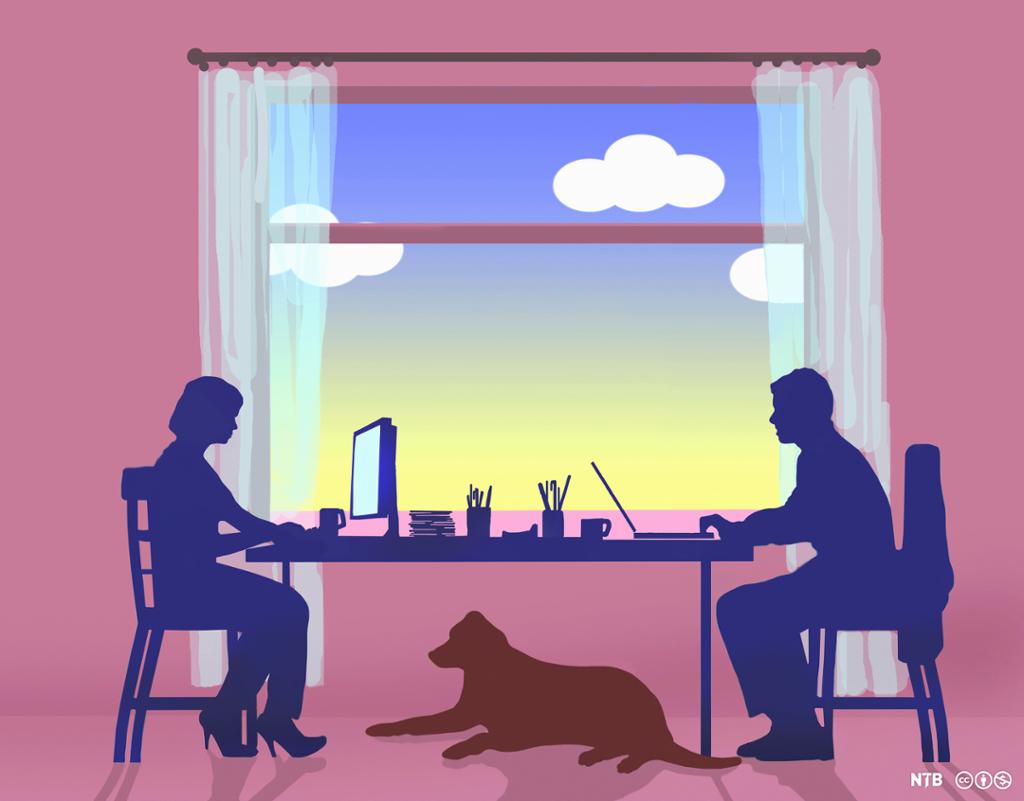Blurring the Lines Between Home and Work

When we think about blurring the lines between home and work, we may think of Silicon Valley tech-companies such as META, Apple, and Google, incentivising workers never to go home by providing free food and drink, areas for sleeping, exercise machines, game rooms, allowing pets in the workplace, and so on. The idea is that the workers will be completely fulfilled at work and never feel the need to go home, thus boosting productivity, which will more than pay for all the freebies.
However, for most people blurring the lines between home and work comes without any such benefits. Longer work-days are becoming the new norm, and those who want to prioritise home life and family are criticised or side-lined. Modern technology makes it possible to expand the work day, as people can continue to work on what they did at the office when they log on to their laptop at home. According to a Gallup survey, full-time US workers on average report working 47 hours weekly, but the number is considerably higher for some.
During the COVID-19 pandemic, many people got a taste of working from home. Some thrived, while others loathed it. The predictability of going to a place of work, enjoying the company of colleagues, and working fixed hours disappeared. Instead, technology made remote working efficient. People mastered new skills and were able to participate in meetings anytime, anywhere. With this followed the expectation that you would be ready all the time, to participate in a meeting or a video call, cooperate on a document, answer e-mails, and so on.
Digital technology has also led to the development of a gig-economy, which has made it easier for people to work as independent contractors. People work independently, for example delivering food or providing transport and getting their orders via apps. They are only limited by their own capacity and will to work. As they are self-employed, they are not protected by laws designed to safeguard employees.
Remote working was a developing trend long before COVID-19. As technology made it possible for workers to be reached by employers at all times, concern grew that the expectation to stay connected could be detrimental to workers' health. The right to disconnect is a proposed human right which would guarantee people the right to disconnect from work during non-work hours.
France has been at the forefront of securing workers' rights in an increasingly digitised world. In 2013, a national cross-sectoral agreement encouraged businesses to avoid any intrusion into employees’ private lives by specifying periods when devices should be switched off. This right was made into law in 2016. Other European countries are following in France's footsteps by introducing 'right to disconnect' language into labour laws, and there are calls for the EU to develop such legislation.
Remote working makes it possible for companies to save money on office spaces, heating, travel, and more. While a supervisor cannot physically oversee an employee's efforts, requirements to log on and use specific electronic tools means that employees can be monitored even more closely than before.
There are also benefits to workers. They may have more time in the mornings to spend with their family, they may avoid stressful or expensive commutes, they may get more control over their work pace and work in a less stressful environment. They may be provided more freedom to travel, as they can connect to their place of work even from a hotel balcony.
On the other hand, working remotely may lead to feelings of isolation and loneliness. There may be private distractions that lead to less efficient work performance. Lack of interaction with superiors and colleagues may also get in the way of promotion.
We live in a new era of digital technology. Workers may work as efficiently from home as from a place of business. As the world develops, many questions arise: Are workers able to draw clear lines between home and work, and do they want to do so? Are new laws necessary to safeguard workers' health? Should the right to disconnect be a human right? While some countries explore legislation, other countries emphasise the free market: If a worker is not willing to be available at all times, perhaps they should consider a different line of work? As citizens, we should take an interest in this process: What do we want the workplace of the future to be like?
Research:
Choose one of the following tasks and find out more. Share your findings with a partner.
Is working from home efficient?
What is it like to work in development at a large tech-company like Apple or Google?
Is being always available and reachable through social media bad for people's health?